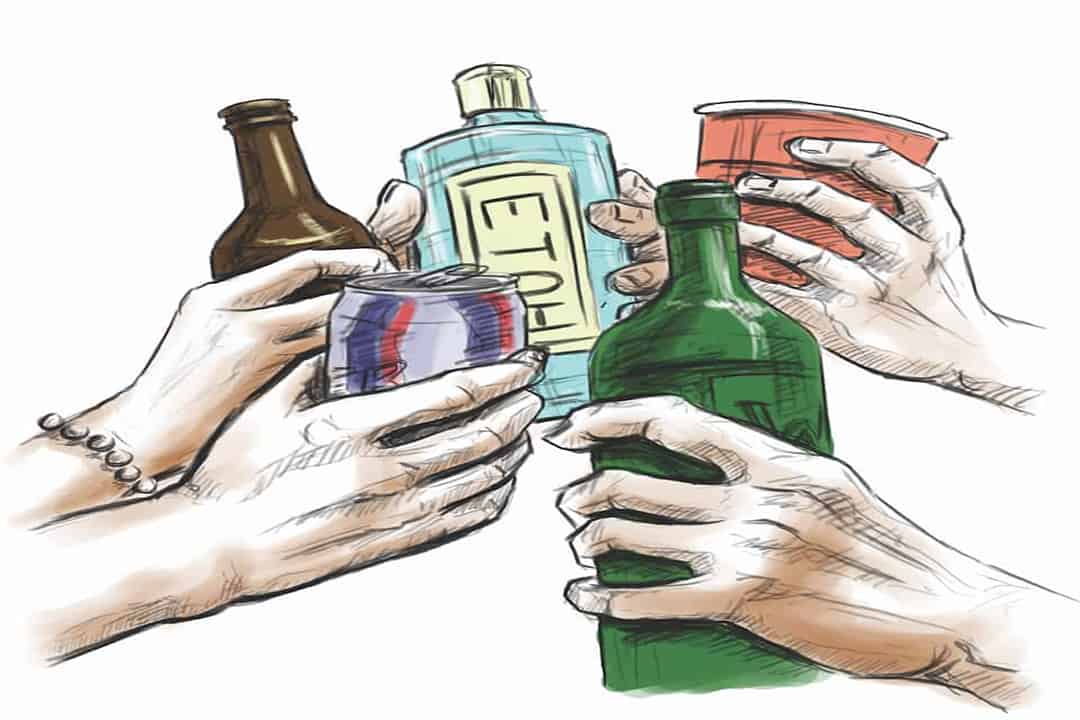As a new school year begins, you may find yourself in a situation that many students have faced in the past — you wake up with a dry mouth, pounding headache, and immense regret. You gaze around your room, attempting to piece together what happened the night before, desperately searching for a cure for your aches and pains. Some believe in revolting green-juice concoctions, while others opt for a greasy meal, but is there any scientific merit behind these so-called “hangover cures”?
Curing a hangover with more alcohol?
Yes, believe it or not, some people do believe the cure to a hangover is to keep drinking. And yes, it is about as helpful as you would think — in that it’s useless. The “hair of the dog” method prescribes more alcohol as a way to relieve your headache, body tremors, and tiredness. However, there is zero evidence to suggest that this solution works, and despite a mild boost in endorphins — the body’s natural pain killers — the hangover will simply return as you inevitably crash.
Tylenol, my beloved
Surely Tylenol, a staple of household medicine cabinets, would be useful during a hangover, right? The truth is, you shouldn’t even consider this drug in your hungover state. Acetaminophen, the active ingredient of Tylenol, does no good to the body when paired with alcohol. In fact, since both are metabolized in the liver, alcohol can inhibit the metabolism of acetaminophen, leading to the buildup of a toxic byproduct.
So, unfortunately, Tylenol will not save you from your hangover. Even non-steroidal anti-inflammatory drugs such as Advil or ibuprofen are not recommended due to conflicting evidence about their effects on hangovers, such as whether or not they may also be toxic.
A big meal for your big headache
This strategy may have some merit behind it, but it is still not a cure per se. A big meal while drinking can slow the absorption of alcohol, which leads some to believe it’s a cure. Foods that are high in protein and fat — such as burgers or hot dogs — can help slow down the digestion of alcohol and decrease that ‘tipsy’ feeling. However, this method can also cause an upset stomach, which worsens your hangover overall.
Therefore, even this method — as tasty as it sounds — also comes up short. If you do consider this method, you should eat before and during your night out rather than afterwards, as this allows the alcohol to mix with the food in your stomach to dampen the effects.
A cup of joe, perhaps?
There’s hardly a university student in the world who doesn’t love a good cup of coffee. Many believe it to be the key to escaping your hangover, as well as a key to staying up a bit longer and studying just enough for that big midterm that’s coming up. If you’ve kept up with the theme of this article, though, you’ll surely guess that this method is also a big cup of baloney. Coffee is a diuretic, meaning it makes you urinate more frequently. This can lead to dehydration, which can actually worsen your hangover.
Due to the effects of caffeine — one of the main chemicals in coffee — coffee also bumps up your blood pressure, which can end up making that hangover headache even worse. I guess you’ll have to skip the coffee cure as well.
So, is there any hangover cure? The evidence seems to suggest you’re out of luck. If you’re reading this article while hungover, or in preparation of one tomorrow, there are some tips to make your hangover milder at the very least.
Firstly, drink responsibly — I cannot emphasize this enough. This means drinking slowly as the night progresses, as well as getting enough water to remain hydrated — one glass of water for every alcoholic beverage. Dark alcoholic beverages such as tequila, whiskey, and red wine can also cause worse hangovers compared to lighter drinks like vodka, since darker drinks contain more congeners, which are byproducts of alcohol fermentation.
Next, get a good night’s sleep. Seven hours or more has been shown to be beneficial for university-age students. Lastly, hydrate even after drinking — water and electrolyte beverages like Gatorade or Pedialyte can go a long way toward helping you feel better.


